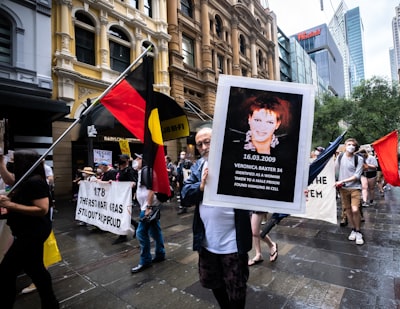Media Accountability and the Antoinette Lattouf Verdict: A Turning Point for Australian Journalism
The recent Federal Court finding that the ABC acted improperly in firing Antoinette Lattouf is not just a legal matter—it's a symptom of deeper fissures within Australia’s public broadcasting landscape. This verdict carves a lasting ripple across media, workplace rights, and the ever-tense intersection of journalistic independence and employer power.
The Heart of the Controversy
Antoinette Lattouf, a respected broadcaster and diversity advocate, was dismissed from ABC after sharing content on social media regarding the conflict in Gaza. The court’s verdict underscores that ABC failed to follow fair processes and may have encroached on Lattouf’s right to express personal views, raising broad questions:
| Issue | ABC's Position | Lattouf's Perspective | Broader Concern |
|---|---|---|---|
| Social Media Conduct | Protect brand neutrality | Authentic public engagement | Chilling effect on journalists |
| Due Process in Employment | Internal review | Inadequate procedure | Erosion of legal safeguards |
| Freedom of Expression | Corporate reputation over risk | Civic responsibility | Self-censorship risks |
Why This Matters
1. Media Ethics vs. Corporate Oversight:
The verdict illuminates the fraught balance between an employer’s right to reputation and the ethical obligations journalists have to truth, nuance, and open debate. ABC’s decision, now rebuked by the courts, showcases the danger when institutional caution morphs into suppression.
2. Precedent for Journalistic Independence:
Australian media, like many democracies, walks a tightrope: safeguard impartiality but not at the cost of silencing diverse voices. Lattouf’s case sets a legal benchmark that may embolden staff at other outlets to challenge dismissals over legitimate commentary, especially on human rights or international affairs.
3. Diversity at Risk:
Lattouf, as a high-profile advocate for multicultural perspectives, represents a broader movement for newsroom inclusivity. Her firing—and now, her partial vindication—spotlights systemic barriers faced by minority voices in reaching narrative parity within mainstream institutions.
"This case is a litmus test for how far public broadcasters will go to police private viewpoints and at what cost to their own legitimacy." — Media Analyst
Unpacking Societal Impacts
The court’s rebuke of ABC arrives amid increasing polarization around the Israel-Gaza conflict, a context where media narratives carry immense weight. Employers often urge restraint, fearing backlash or claims of bias, but the risk is that timidity breeds a bland, risk-averse media culture—one unable to reflect the complexities of society or uphold the very principles of democracy.
What Comes Next?
This is more than a one-person story; it’s a clarion call for renewed discussion on workplace speech, digital era boundaries, and the core mission of public broadcasting. Boardrooms and newsrooms nationwide are quietly recalibrating protocols, aware that the eyes of the community and the courts are watching more closely than ever.
Bottom line: If media organizations silence their own, the public loses not just storytellers but authentic stories—especially those that challenge status quo thinking.
This article was inspired by the headline: 'Federal Court finds ABC acted improperly in firing Antoinette Lattouf'.

Comments
No comments yet. Be the first to comment!